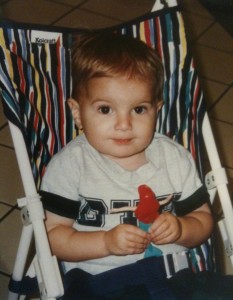Present word count of WIP: 50,792 (yes, I refined a bit)
Before I continue my description of our own Asperger’s journey, I want to make three things clear:
1) No two individuals with an Autistic Spectrum Disorder (including Asperger’s) are alike. Some will have food issues, others won’t. Some may be strong in language, others in match and science, etc. These postings, then, are about our particular journey. There are plenty of other stories online. (I know this because I sought them out over a decade ago when I was hungry to know more, and I’m certain there are many more today than there were then.) If you want to understand the disorder better in all its permutations, check out the website for Autism Speaks, or if you’re particularly interested in Asperger’s, then I recommend the Online Asperger Information and Support Center. Also, I don’t pretend that Autism is the only developmental disability in the world. A fellow writer and friend of mine, Margaret Turley, included a special mention of Autism at the end of March as a part of National Developmental Disabilities Month. You might want to check out all her postings last month.
2) Jason has given me permission to share his story in this way. He comprehends that there is a need to help increase understanding about Autism in all its forms, as well as to seek its cause(s). We are doing this for the same reason we decided to take part in IAN, the Interactive Autism Network set up to link researchers with families impacted by ASD. We want to provide support, answers, and a sense of community for individuals who, for too long, have felt like outsiders in this “neurotypical” world.
3) Jason’s story will continue both here and on the website of Madison House Autism Foundation, a non-profit group formed by friends of mine in Maryland to assist those with autism (and their families) as they navigate the rest of their lives once they reach adulthood. Much has been written and produced to help children with autism, but what about when they grow up? Or what about those who don’t discover why they have felt so “different” all these years until they are older? With so many diagnosed on the autistic spectrum, we are facing a future filled with such individuals as my son. As Jason graduates from high school next month and begins to make his way into the adult world, I’ll try to share the challenges, setbacks, and triumphs every second and fourth Friday of the month.
Now…on with our journey.
Early on, there were other signals that alerted me to the fact that Jason wasn’t a typical kid. Because our daughter had been a late walker, I wasn’t so concerned about his delay in gross motor skills. By the age of 2, however, he still hadn’t seemed to clue in to the process of communication.
Allison was an early talker, but Jason said very little. In fact, I began to wonder if he had a hearing problem because, often, when I’d call out to him, he wouldn’t even turn around, let alone respond. But the pediatrician checked his hearing and found it to be perfectly normal.
It wasn’t that he couldn’t speak or say words. He was very adept at repeating any word I told him. His vocabulary was adequate; he just didn’t seem to know what to do with all those words. I’d ask him a question like, “Do you want some water?” Instead of nodding or shaking his head, or saying “Yes” or “No,” he’d simply repeat my question or at least the last part of it. (I came to find out later that this behavior is called “echolalia,” a condition that often presents itself in autism and other developmental disabilities.)
By this time, my daughter was enrolled in Kindergarten and I was aware that her local elementary school had a speech therapist. I figured he needed speech therapy, so I called up the school. While the therapist would have been happy to meet with me, she fortunately pointed me to a much better resource: the school district’s Sunshine Early Childhood Center. I made an appointment there to have Jason tested and took him down on the appointed day–a Friday.
They tested him for everything: physical abilities, speech abilities, drawing abilities, social abilities, etc. As I recall, it took a good hour and a half, if not two hours. Then, at the end, they told me:
“Mrs. Mills, Jason definitely qualifies for our program. He’s communicatively handicapped. He’s delayed in fine and gross motor skills. And he’s orally and tactilely defensive.”
(I knew he was very careful about what he’d allow me to put in his mouth, but I wondered about the tactile part until I recalled the way I’d had to cut labels out of his tee shirts and pants…and how much he hated the feeling of rain on his head, or getting his clothes wet…and the way he howled whenever I had his hair cut.)
They didn’t call it autism then because he seemed so high-functioning in some ways (he really knew his letters and numbers), and this was in 1996, less than two years after Asperger’s became an official diagnosis.
Still, I was happy to have any kind of conclusion, so I said, “Fine. What do I do next?”
Keep in mind that I was only now getting used to having my daughter gone every morning for kindergarten. She had done a couple of years of pre-school before that but they had met only three mornings a week. I figured this Sunshine School was going to be like a pre-school. Boy, was I wrong!
The school principal told me to bring him to the school at 8 am on Monday, then pick him up at 3 pm. Thereafter, she told me, a bus would pick him up from our house in the morning and deliver him back in the afternoon.
I looked down at my darling little two-and-a-half-year-old boy and gulped. “Are we talking two or three days a week?”
“Every day,” she said. I remember that my mouth dropped open.
“Five days a week? He’s going to be in school longer than his older sister, and she’s three years older than him!”
They assured me that he needed it and that he would get used to it.
“But he’s not even toilet trained,” I argued. (M&Ms had worked wonders with his sister, but there wasn’t any special food I could use to bribe Jason.)
“Oh, we’ll take care of that. We’ve got special training potties in every classroom.”
Still stunned, I followed the principal and speech therapist as they walked us around the school to show me all the facilities. Not only would Jason be in a regular classroom with other disabled children, but he would receive regular speech therapy and occupational therapy. Talk about early intervention! Of course, at the time I didn’t appreciate the life-changing gift they were providing because I still knew next to nothing about autism.
All I knew that day was that, come Monday, I was going to be a very lonely mother all morning and a very worried mother all day. And I couldn’t help wondering if this, like the carrots, would lessen his trust in me.
Would he still love me Monday afternoon?
On Friday, I’ll post about Jason’s “Sunshine” experience.
Originally posted 2012-04-09 10:56:20.


